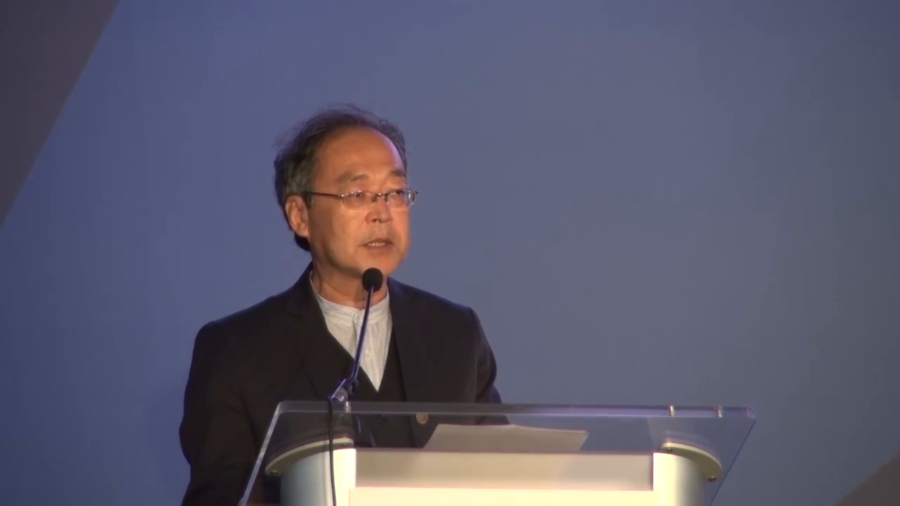Tadao Takahashi: Thank you Internet Society for having me here. It’s really a great honor. And I want to take the chance to thank many people who are not here, and some people who are here.
First my sister Laura who came all the way from Barcelona where she lives. My brother in arms Demi Getschko. You know him; he’s around and he came from São Paulo. My best friend and colleague Claudine de Oliveira, who is certainly watching the ceremony from Rio de Janeiro. And through Claudine and Demi, I wish to acknowledge the participation of hundreds of people. My idea is that it was more than 300 people for sure, whom I could recall individually and with whom I worked for ten to twelve years deploying the Brazilian Internet.
On the other hand I want to thank in the person of Glenn Ricart. A whole region of people abroad here in the US, Europe, and Japan who helped the Brazilian Internet initiative take off. And those people helped others in so many anonymous and generous ways.
To name a few let me cite Steve Goldstein who’s not here. Larry Landweber, who’s here. Saul Hahn was mentioned by Pietrosemoli. Andrew McLaughlin, Daniel Karrenberg, etc.
Now, let me take the chance to make a few comments regarding the situation in Brazil when we started to deploy the Internet and compare it with the situation today, thirty years later. Thirty years ago when we started to think about actively connecting the country to the then-academic Internet which was taking off in the world, the situation in Brazil was pretty much as you see today on the news. Inflation rates pretty high, a totally discredited political party in power, a significant parcel of the population struggling to barely maintain a [modus operandi?] to the next day and so on.
Even in that situation, we were able to get started and we were able to get the support of all those people I mentioned and I didn’t mention, so that the Brazilian initiative for the Internet took off with energy. And throughout the early 90s the result started to show that the bet on the future was really the correct thing to do.
Now, looking at Brazil again thirty years later, we see the very same situation. And the question is what to do. The whole country has been waiting to see when and how recovery will begin, political, economic and so on. Meanwhile, you see several initiatives related to ICTs and to Internet in Brazil have been advanced by the government and by the private sector because life goes on and you cannot just sit there waiting for something to happen. And I would say that even the Brazilian government and particularly the secretariat for ICT policies in Brazil, they have been carrying their duties with competence under very difficult circumstances.
So, what to do? We have been watching these initiative with great sympathy. Because in times of crisis, even those run-of-the-mill activities are important in order to prepare the country to restart functioning properly in better times which we expect are going to come from next year on.
On the other hand, since at least two years ago my group has been participating in several discussions regarding what to do to take ICTs and the Internet to Brazil to a really strategic next level as a super-governmental initiative (not to depend too much on governments) in order to structure the basis for a strong, sustainable cycle of economic and social development aiming at the year 2030 as the year where we’re going to cross the watermark again, so to say.
So, the short stay at this ISOC event has been very important for me. Because it has allowed me to get updated on current issues and ideas. It has allowed me to renew old and always-precious contacts (there are many people here who I have not seen for the last twenty years or so), so that I can really get to reenergized and anxious to get back to Brazil.
And a final comment is that I was watching the talks and ideas of those under-25s here, and it gets clear in my mind and in the mind of everybody, I think (as if it could be forgotten which is impossible) why and how we have to face our troubled times with renewed confidence. It is that in any country there are countless under-25s at this ripe moment, looking for ways to contribute to the future of the country through ICT initiatives. So, in each country and in each troubled time, it is time to rearticulate the future, to pass the baton on, and to rest assured that an eager and enthusiastic generation will take on. And that’s basically what we are doing.
Thank you again for the opportunity to be here. I’m really humbled and honored. Thank you.
